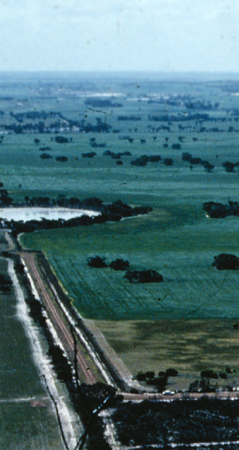Conservation Biology

Maintenance of Australia's unique natural ecosystems and their constituent biodiversity is a national biological management objective and a priority for sustainability. The intrinsic value of native plants and animals, the roles they play in providing valuable ecosystem services that underpin agricultural production, and their value as genetic resources makes their long-term persistence critical for both conservation and utilisation. Currently, Australia's biodiversity is subject to a broad range of threatening processes including introduced weeds and feral animals, disease, habitat loss, degradation and fragmentation associated with farming and agriculture, as well as changing fire regimes, soil salinisation and erosion.
The challenge for conservation biology is to provide management strategies that will preserve and restore native species and ecosystems, as well as the useful resources they represent. To be successful, such strategies must be based on good scientific research regarding basic species biology, assessment of current condition, likely future responses to different land use practices and requirements for ecosystem restoration.
Our aim is to provide this research base by integrating the use of molecular genetic and quantitative ecological approaches to investigate a broad range of plant genetic resources, phylogenetic, population genetic and ecological questions. This is complemented by a strong emphasis on the application of computer simulation models to explore complex interactions among ecological and genetic processes and to provide long-term predictive power.
